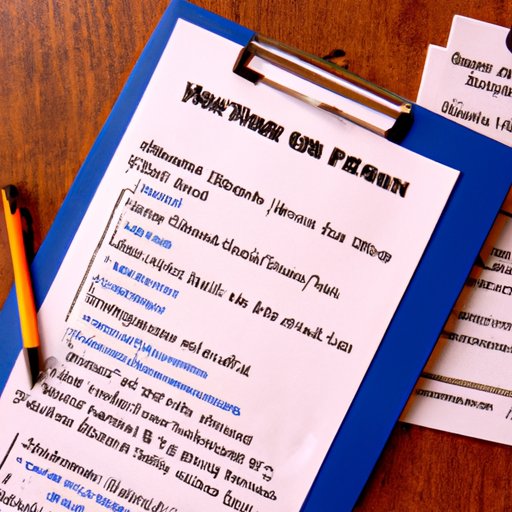Introduction
Unemployment is a serious issue that affects millions of people around the world. When someone loses their job due to layoffs or other reasons, they may be eligible to receive unemployment benefits, which can help them make ends meet while they search for a new job. But what happens when an employee is fired from their job? Can they still get unemployment benefits? This article will explore this question in depth, discussing the rights of employees who were fired and are seeking unemployment, how to file for unemployment after getting fired, and the pros and cons of filing for unemployment after being fired.

Understanding Unemployment Benefits After Getting Fired
The first step to understanding whether you can receive unemployment benefits after being fired is to understand your rights as an employee. According to the National Conference of State Legislatures, “Most states provide unemployment insurance benefits to individuals who are unemployed through no fault of their own.” This means that if you were fired due to circumstances beyond your control, such as company restructuring, you may still be eligible to receive unemployment benefits. However, if you were fired due to misconduct, such as violating company policy or engaging in illegal activities, you may not be eligible for unemployment benefits.
If you believe that you are eligible for unemployment benefits after being fired, it is important to take certain steps to ensure that you are able to receive the benefits that you are entitled to. First, it is important to contact your state’s unemployment office to determine what documents and information you will need to provide in order to apply for unemployment benefits. This may include providing proof that you were employed by the company, that you were terminated, and that the termination was due to circumstances beyond your control. Additionally, you may need to provide proof of income, such as pay stubs, in order to qualify for unemployment benefits.
How to File for Unemployment After Getting Fired
Once you have determined that you are eligible for unemployment benefits, the next step is to file for unemployment. The process of filing for unemployment benefits varies from state to state, but typically involves submitting an application online or via mail. Depending on the state, you may also be required to attend an in-person interview with an unemployment representative. During this interview, you will likely be asked questions about your previous employment, why you were terminated, and other relevant information.
In some cases, employers may challenge an employee’s request for unemployment benefits after being fired. This is why it is important to be prepared for the application process and to have all necessary documentation ready to submit. If your employer challenges your claim for benefits, you may be asked to provide additional information or explain why you believe that you are eligible for benefits. In most cases, the state’s unemployment office will make the final decision regarding eligibility.

Pros and Cons of Filing for Unemployment After Being Fired
Filing for unemployment benefits after being fired can be beneficial in certain situations. For example, receiving unemployment benefits can provide financial assistance while you search for a new job. Additionally, receiving unemployment benefits can show potential employers that you are actively looking for work. However, there are also some drawbacks to filing for unemployment after being fired. For example, receiving unemployment benefits may reduce the amount of money you are eligible to receive from Social Security or other government programs. Additionally, receiving unemployment benefits can impact your ability to receive certain types of loans, such as student loans.
Conclusion
In conclusion, it is possible to receive unemployment benefits after being fired. To be eligible for benefits, you must prove that your termination was due to circumstances beyond your control. It is also important to prepare for the application process and be prepared to answer any questions from your state’s unemployment office. Finally, it is important to consider both the pros and cons of filing for unemployment after being fired before making a decision.
(Note: Is this article not meeting your expectations? Do you have knowledge or insights to share? Unlock new opportunities and expand your reach by joining our authors team. Click Registration to join us and share your expertise with our readers.)
